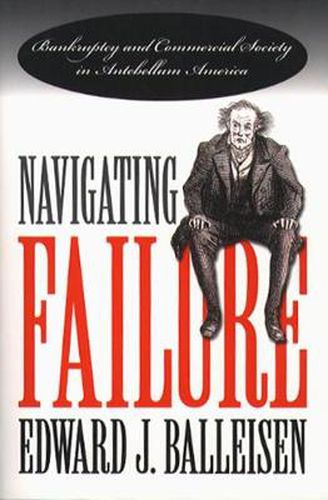Readings Newsletter
Become a Readings Member to make your shopping experience even easier.
Sign in or sign up for free!
You’re not far away from qualifying for FREE standard shipping within Australia
You’ve qualified for FREE standard shipping within Australia
The cart is loading…






The culture of American capitalism and one of its most enduring features - bankruptcy The
self-made
man is a familiar figure in nineteenth-century American history. But the relentless expansion of market relations that facilitated such stories of commercial success also ensured that individual bankruptcy would become a prominent feature in the nation’s economic landscape. In this ambitious foray into the shifting character of American capitalism, Edward Balleisen explores the economic roots and social meanings of bankruptcy, assessing the impact of widespread insolvency on the evolution of American law, business culture, and commercial society. Balleisen makes innovative use of the rich and previously overlooked court records generated by the 1841 Federal Bankruptcy Act, building his arguments on the commercial biographies of hundreds of failed business owners. He crafts a nuanced account of how responses to bankruptcy shaped two opposing elements of capitalist society in mid-nineteenth century America.
$9.00 standard shipping within Australia
FREE standard shipping within Australia for orders over $100.00
Express & International shipping calculated at checkout
The culture of American capitalism and one of its most enduring features - bankruptcy The
self-made
man is a familiar figure in nineteenth-century American history. But the relentless expansion of market relations that facilitated such stories of commercial success also ensured that individual bankruptcy would become a prominent feature in the nation’s economic landscape. In this ambitious foray into the shifting character of American capitalism, Edward Balleisen explores the economic roots and social meanings of bankruptcy, assessing the impact of widespread insolvency on the evolution of American law, business culture, and commercial society. Balleisen makes innovative use of the rich and previously overlooked court records generated by the 1841 Federal Bankruptcy Act, building his arguments on the commercial biographies of hundreds of failed business owners. He crafts a nuanced account of how responses to bankruptcy shaped two opposing elements of capitalist society in mid-nineteenth century America.